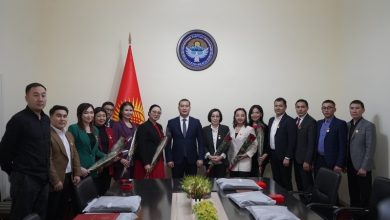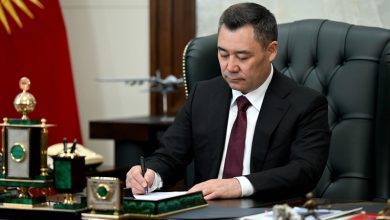Kazakhstan Launches Coordinating Council to Tackle Water Challenges, Unveils Partnership with UNDP
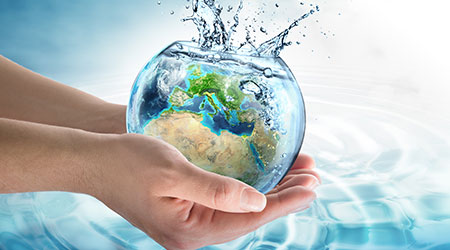
ASTANA—The Kazakh capital hosted on Sept. 30 the first meeting of the coordinating council of partners on the development of Kazakhstan’s water sector, aimed at supporting the nation in addressing water-related challenges. The event also featured the presentation of the Water Partnership Initiative, developed with the support of the United Nations Development Programme (UNDP).
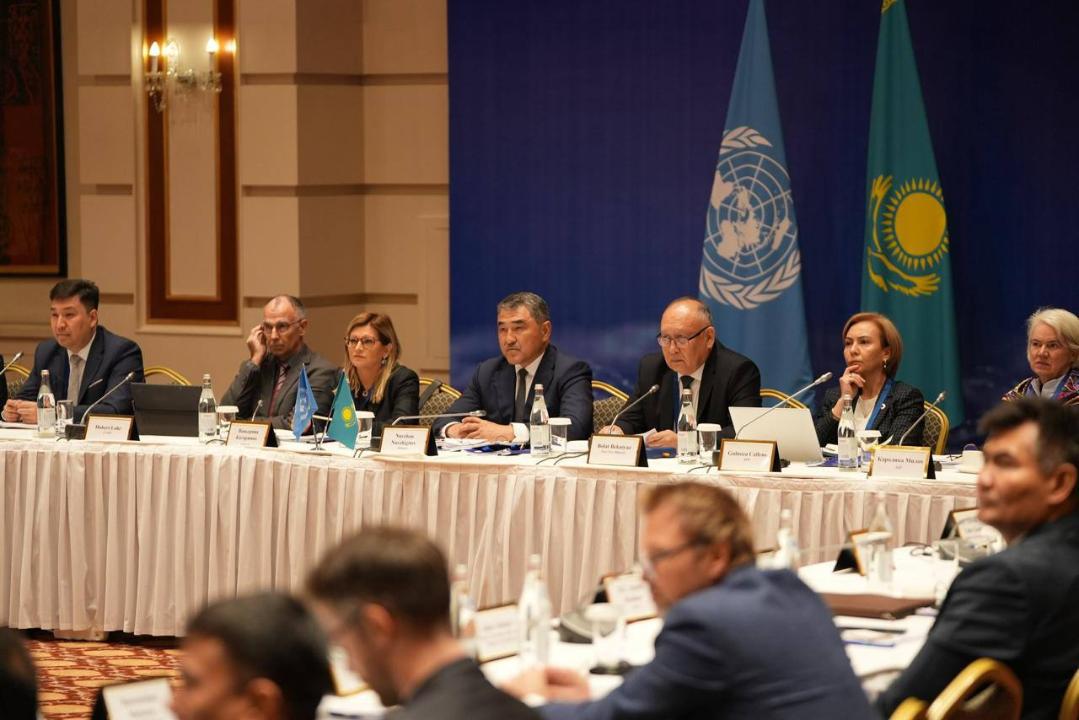
The Ministry of Water Resources and Irrigation is a relatively young one, established in September last year. Photo credit: Ministry of Water Resources and Irrigation
The council meeting brought together key stakeholders from the Kazakh government, international organizations, financial institutions, diplomatic circles, and the private sector. The meeting focused on urgent issues facing the water sector of Kazakhstan, a country facing increasing pressure on its water resources due to climate change, inefficient irrigation systems, and outdated water infrastructure.
Speaking at the event, Minister of Water Resources and Irrigation Nurzhan Nurzhigitov emphasized the importance of collaboration between the public and private sectors and with international partners. He highlighted that the council will play a crucial role in fostering these partnerships, allowing for the exchange of knowledge, research, and technology to better address Kazakhstan’s water challenges.
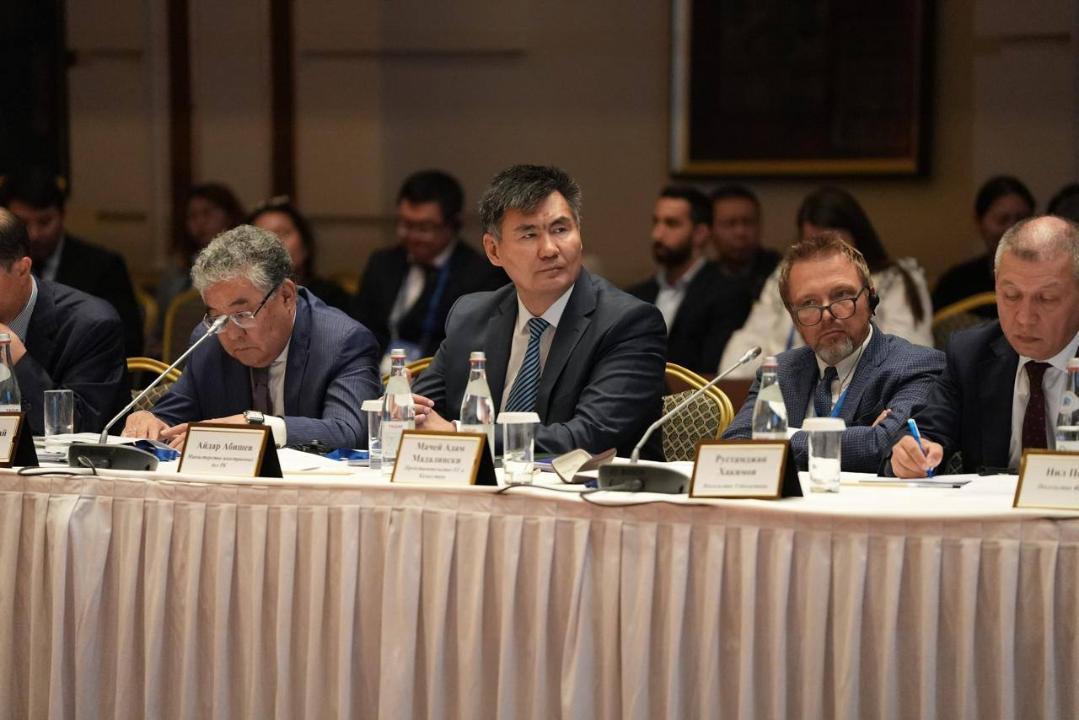
The event convened key stakeholders. Photo credit: Ministry of Water Resources and Irrigation
“I am confident that the Coordinating Council will significantly boost cooperation in Kazakhstan’s water sector,” said the minister. “Joint research, technology, and innovation can enhance water supply and climate resilience.”
“We invite our partners to co-chair the council on a rotational basis. This year, we are proposing this role to the United Nations Development Programme,” said Nurzhigitov.
UNDP Resident Representative in Kazakhstan Katarzyna Wawiernia echoed these sentiments, stressing that countries cannot address the complex issues surrounding water management alone.
“Given the complexity of the water agenda, it is clear that no single government or organization can tackle these issues alone. Therefore, addressing these challenges requires a combination of resources, investments, technical expertise and innovations. I hope that the Partnership Initiative proposed today by UNDP and the Ministry of Water Resources and Irrigation will serve as an important catalyst in this process,” said Wawiernia.
Water Partnership Initiative
The meeting also featured a presentation of the Water Partnership Initiative for 2024-2030, developed by UNDP in collaboration with the ministry. The document consists of four key areas – the development of a water information system, modernization of water infrastructure taking climate challenges into account, implementation of modern irrigation systems, and transboundary water cooperation.
Presenting the initiative and each area in detail, Hubert Lohr, UNDP international advisor for water resources management, said the frequency of extreme weather events, including floods that Kazakhstan faced in spring, will grow.
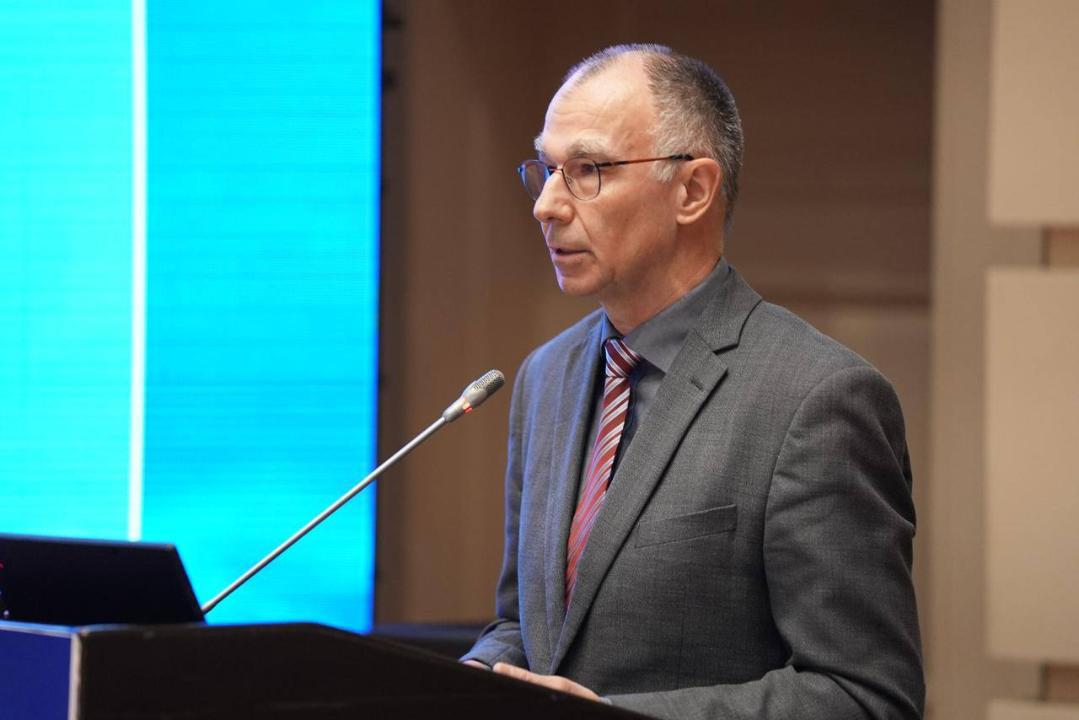
Hubert Lohr presented the Water Partnership Initiative. Photo credit: Ministry of Water Resources and Irrigation
“Having said this, and given the fact that climate change will not stop, we will also face longer and more intense drought events causing serious water deficits. It will be to find a balance between too much and not enough water. If we combine an increase in water-related hazards with old water infrastructure, with operation rules, which are in need of substantial review, a low water use efficiency and increasing water demand, then it is not a surprise that water is the highest priority in the country now,” said Lohr.
Minister Nurzhigitov noted the initiative “provides a framework for attracting donors and promotes coordination between the public and private sectors.”
“The program aims to increase resilience to climate change and sustainable water management through institutional strengthening and regional cooperation. It is designed to support the government’s efforts to promote effective joint water management, especially in the context of increasing climate challenges,” said the minister.
The UNDP-led partnership offers coordination, something the water sector in Kazakhstan has been lacking.
“This partnership, as it is initiated and shaped here, is really outstanding because it will coordinate various activities from international organizations coming in, local organizations, private stakeholders, private companies, as well as the interest, of course, of the ministry, which is at the heart of the partnership, and the water sector development plans,” Lohr told The Astana Times.
He stressed the development of the water sector is a cross-cutting issue, intersecting with various other sectors, which requires careful coordination.
“You will find out a lot of overlaps. One organization thinking about supporting a certain roadmap in terms of water supply, and another is about flood maps. All these topics have overlaps. This means that if you have a coordination role that is outstanding in increasing synergies, I think we will find a lot of synergies, which means they join forces – the international organizations – and they are stronger if we are able to collaborate and to bring them together, instead of everyone does its own thing,” he said.
Lohr believes addressing transboundary cooperation might be the most challenging out of the four areas in the partnership.
“You can work very well inside the country because you have a clear common interest. (…) If we go on the transboundary side, transboundary does not necessarily mean a country interest is in line with another country’s interest. To overcome this, the first thing is to make them aware that opportunities are there if we work together and the opportunities are maybe even stronger than if you work alone. That really takes time,” he said.
Lohr emphasized the importance of patience and trust in managing transboundary water resources. “If you find common ground, that is a starting point, and then you can really move along. Look at Europe. It took about 15 years to create these basin commissions – River Rhine, Elbe, Danube,” he said.
One year for the new ministry
Speaking to journalists, Minister Nurzhigitov highlighted the efforts of his ministry, a relatively new one established in September 2023.
“Within one year, we have done enormous work in three areas. First is the development of a legislative base. Now, the Water Code is being considered in the Mazhilis [a lower chamber of the Kazakh Parliament], and we expect it will be adopted by the end of the year. We also adopted the concept for the development of the water resources management system 2024-2030 and a comprehensive plan for the development of the water sector to address all problems in the water sector,” said the minister.
“In our agricultural sector, water-saving technologies have been well utilized. Currently, over 300,000 hectares are using these technologies. This year, for example, laser land planning was used in the Kyzylorda Region to prepare for the spring fieldwork. All of these measures contribute to water conservation,” said Nurzhigitov.
However, he stressed water saving starts with each individual and changes in one’s water use habits.
“We need to develop a culture of water saving. Of course, it all begins in households, schools and our everyday life,” he added.
He added the council would conclude with the establishment of a secretariat. The council will meet twice a year.


